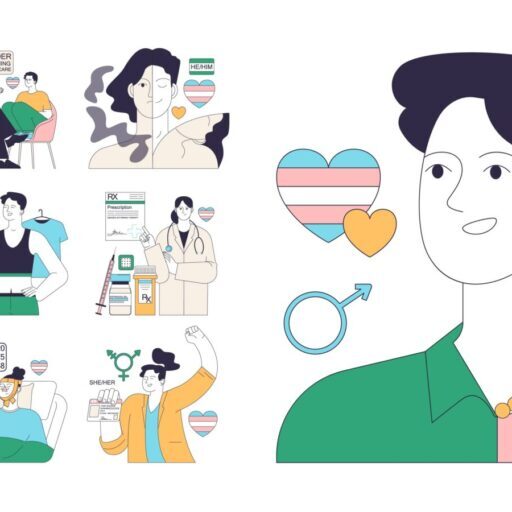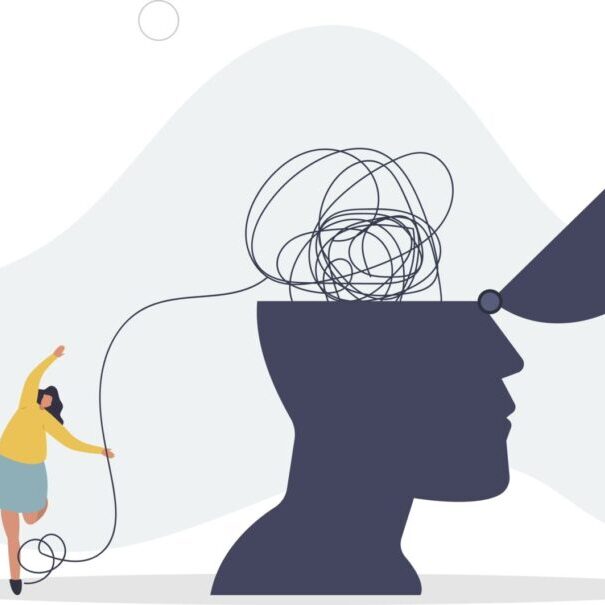LGBT-Affirming Therapy for You and Your Loved Ones

Pride Month is a time to celebrate the diverse identities and experiences within the LGBTQ+ community. It is a time of reflection, acceptance, and solidarity, as well as an opportunity to show support for our loved ones who may identify as lesbian, gay, bisexual, transgender, or queer.
One important way we can support our transgender family members is by advocating for and encouraging LGBT-affirming therapy. In this blog post, we will explore the significance of Pride Month, the importance of affirming therapy, and practical ways to support a transgender family member.
Understanding Pride Month
Pride Month, traditionally celebrated in June, commemorates the Stonewall Riots of 1969, a turning point in LGBTQ+ history that sparked the modern-day fight for equality and liberation. It is a time for individuals to honor their authentic selves, express pride in their identities, and raise awareness of the ongoing struggles faced by the LGBTQ+ community. Pride Month encourages acceptance, education, and advocacy for equality.
The Importance of LGBT-Affirming Therapy
Transgender individuals often face unique challenges, including gender dysphoria, discrimination, and social stigma. LGBT-affirming therapy provides a safe and supportive environment where individuals can explore their gender identity, address mental health concerns, and receive the validation they deserve. Here are some key benefits of LGBT-affirming therapy:
- Validation and Support: Affirming therapists understand the unique experiences and challenges faced by transgender individuals. They provide a safe space for individuals to express themselves openly without fear of judgment or misunderstanding.
- Gender Identity Exploration: Therapy offers a platform for transgender individuals to explore their gender identity, gain self-awareness, and navigate the complexities of transitioning if desired. It can help them better understand their feelings and develop coping strategies to manage societal pressures.
- Mental Health and Well-being: Transgender individuals may experience higher rates of anxiety, depression, and other mental health issues due to societal rejection and internal struggles. LGBT-affirming therapy can provide the necessary tools to improve mental well-being and develop healthy coping mechanisms.
- Building Support Networks: Affirming therapists often have connections to local LGBTQ+ resources and support groups, enabling individuals to build a strong network of peers who share similar experiences. These networks can provide emotional support, validation, and guidance throughout the journey.
Practical Ways to Support a Transgender Family Member
Supporting a transgender family member goes beyond encouraging therapy; it requires active participation and genuine empathy. Here are some practical ways to show your support:
Educate Yourself: Take the initiative to learn about gender identity, transgender experiences, and the challenges faced by the LGBTQ+ community. Educating yourself will help you understand and empathize with your loved one’s journey.
Active Listening: Create a safe space for open communication. Allow your family member to express their thoughts, feelings, and concerns without interruption or judgment. Show genuine interest, ask questions, and validate their experiences. Be open to attending LGBT-affirming family therapy with them.
Use Appropriate Pronouns: Respect your loved one’s gender identity by using their preferred name and pronouns. Using correct pronouns demonstrates your acceptance and affirmation of their identity.
Attend Supportive Events: Accompany your family member to LGBTQ+-friendly events, such as Pride parades, community gatherings, or transgender support groups. Being present shows your commitment to their well-being and acceptance.
Advocate for LGBTQ+ Rights: Get involved in advocacy efforts and support organizations working to promote equal rights for the LGBTQ+ community. Show your family members that their rights and well-being matter to you.
Get support for yourself. Finding out that your loved one is transgender or otherwise part of the LGBT community may disrupt your vision of who they are. Feelings of grief and loss can be normal. The best thing you can do for yourself and your loved one is to find a safe space for you to process this away from them; possibly finding an LBGT-affirming therapist for yourself, or exploring groups like PFLAG.
Pride Month serves as a reminder to support and uplift our transgender family members, who deserve love, acceptance, and respect. Encouraging LGBT-affirming therapy is an essential step toward their well-being and self-actualization.
By educating ourselves, actively listening, using appropriate pronouns, attending supportive events, and advocating for LGBTQ+ rights, we can create a safe and affirming environment that celebrates and supports our transgender loved ones throughout their journey of self-discovery and self-acceptance.
Let us embrace the spirit of Pride Month and stand in solidarity with the LGBTQ+ community, spreading love, inclusivity, and understanding.
This blog is made for informational and educational purposes only. It is not medical advice. The information in this blog is not intended to (1) replace a one-on-one relationship with a qualified licensed healthcare provider, (2) create or establish a provider-patient relationship, or (3) create a duty for us to follow up with you.



